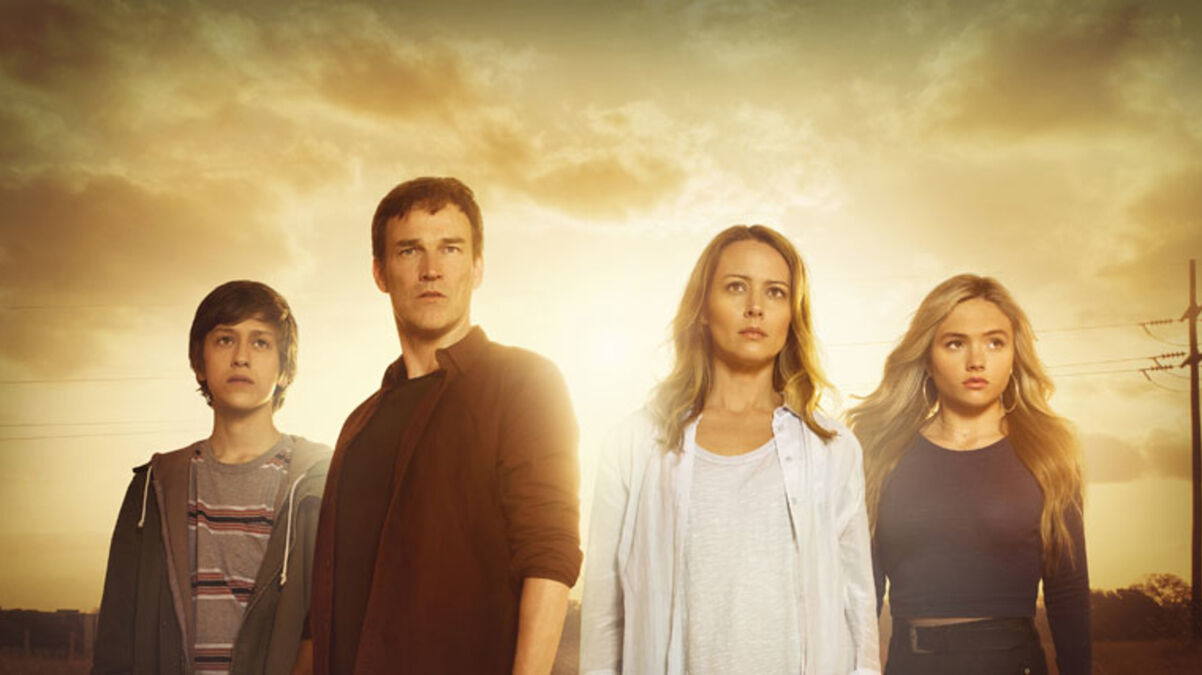This weekend marks the debut of Fox’s The Gifted, a brand new Marvel show that takes place in the X-Men universe. Which guarantees we can expect to see a clunky “coming out” scene where the similarities between being a mutant and being LGBTQ are spelled out to the audience.
“I just can’t believe there wasn’t any warning,” says concerned mother in the trailer. “Why didn’t you tell me?” If that sounds familiar, it’s because you’ve heard it before. In the movie X-Men 2, Bobby’s mother asks; “have you ever tried not being a mutant?” Similarly, X-Men: The Last Stand opens with a mutant character’s father lamenting; “not my son.”
It’s easy to draw a straight line between mutants and queerness. Mutations tend to manifest during adolescence, that same odd time when LGBTQ kids start to realise they’re not like their peers something which will set them apart for most of their lives, and single them out for persecution. Mutants and monsters are innately outsiders, inviting comparisons to LGBTQ people across entertainment and literature. But does this allusion always work?
In The Gifted, mutant siblings Lauren and Andy’s father is played by Stephen Moyer, who is no stranger to queer metaphors, having played vampire Bill Compton in True Blood for seven seasons. That show begins with a painfully on-the-nose parallel; vampires make their existence known to the world, in a moment which comes to be known as “coming out of the coffin.” The Westboro Baptist Church even gets its own shout-out in the opening credits, with a a sign declaring “God Hates Fangs.”
From the off, it’s clear where show-runner Alan Ball is going with this. Just take a look at vampire bar Fangtasia. It’s the only one of its kind in the county, meaning you have to drive for miles to reach it a detail which will speak to anyone who grew up in the sticks where the only gay bar was two towns away. Step inside, and Fangtasia is all black leather and innuendo. A den of depravity, or as a queer kid might see it, a haven of community and self-expression.
Alas, that’s where the elegance of True Blood’s allegory runs out. Yes, vampires live in their own spaces on the fringes of society, but they also repeatedly use their superior strength and speed to blithely commit acts of gratuitous violence. They are continually presented as predatory and sexually voracious qualities often attributed to the queer community by conservatives in an attempt to paint us as a sinister, rapacious force intent on corrupting children. Within the show, the very act of biting is depicted in turn as erotic and as a violation, used both to consummate relationships and to dominate one’s enemies. The blurring of these lines, the conflation of sex with abuse, is a popular trick among homophobic orators.
All that aside, there’s something deeply appealing about the notion that a marginalised group can actually be more powerful than their oppressors. That forming a surrogate family unit, be it living with your maker in the basement under a “fangbanger” bar, or rooming with a fellow mutant at the X-Mansion, can be a source of strength.
So yes, these allegories do strike a chord, albeit some more gracefully than others. But it’s still hard not to feel like they’re still a bit of a cheat. A way for screenwriters and producers to congratulate themselves on telling stories about minorities, without including any real life minorities. Because if your character has psychic powers or blue skin, then you don’t need to cast more than one token person of colour, right? Or include LGBTQ characters, or do literally anything to champion diversity in a way that might irk your straight viewers? Far too often, what makes these characters “different” is so patently fantastical, and painted in such broad strokes, that it can be hypothetically applied, one-size-fits-all, to any marginalised community in the real world, no further work required.
LGBTQ people have long been drawn to the outsider narratives of X-Men, partly because for most of the 20th Century there was so little in pop culture where we could see any version of ourselves represented. In the comics right now, queer visibility is on the rise; leading character Bobby Drake is officially, openly gay, and over in the DC universe, Poison Ivy and Harley Quinn are a couple. But on-screen, it seems producers are still asking us to use our imaginations, to project our own identities onto the straight, white, cisgender, all-American “misfits” they have cast.
One of the most famous figures in X-Men history, Magneto, was written as a Holocaust survivor, to remind us that it isn’t just fictional mutants who fall prey to mass persecution, that these atrocities can and do happen in our world. Those kinds of direct parallels feel even more necessary now, when straight viewers will gladly watch a show about homeless mutant kids on the run, but not think about how that story translates to our current world, and maybe even balk at the “liberal agenda” of a same-sex kiss.
In the 1960s, sneaking civil rights proxy narratives into these stories, making readers empathise with the “other,” was genuinely creative and radical. But it’s 2017.
Time for some of that subtext to become text.
Don't forget to share:
Help make sure LGBTQ+ stories are being told...
We can't rely on mainstream media to tell our stories. That's why we don't lock our articles behind a paywall. Will you support our mission with a contribution today?
Cancel anytime · Proudly LGBTQ+ owned and operated
Read More in Culture
The Latest on INTO
Subscribe to get a twice-weekly dose of queer news, updates, and insights from the INTO team.
in Your Inbox













